 |
 |
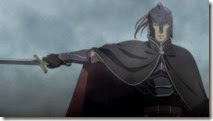 |
This season is full of anime that forgot to check the calendar. And I expect them all to sell like crap.
OP: “Boku no Kotoba de wa Nai Kore wa Boku-tachi no Kotoba” (僕の言葉ではない これは僕達の言葉;These Aren’t My Words. These Are Our Words) by UVERworld
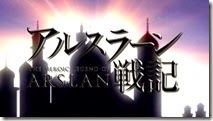 |
 |
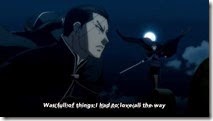 |
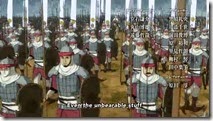 |
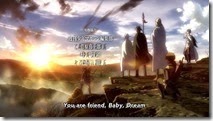 |
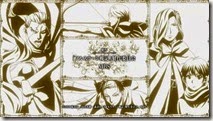 |
Watching Arslan Senki kind of makes me feel like reprinting all the stuff the haters said about Hunter X Hunter 2011 before the show aired (and even after, for a while). Not just because of how good these first two episodes have been – which is very damn good indeed – but because of how I feel fortunate to be able to go into this show without the baggage of expectations. If you condemn an adaptation before it even starts, it seems to me that it’s going to be pretty hard not to find what you’re looking for whether it’s there or not. No series is perfect, and people are going to like or dislike this one for legitimate reasons, including fans of the novels. But it sure is nice to be able to assess Arslan Senki strictly on its own merits.
I found this episode to be even stronger than the premiere (for the record I found the OP kind of meh, but I liked the ED an awful lot). Having suffered through two seasons of Kingdom I’m going to find any complaints about the visuals here pretty comedic, because even if this ain’t ufotable, the battle scenes are quite good – there’s CGI but not a preponderance of it, it’s pretty decent and quite well-integrated. And director Noriyuki Abe has shown a ken eye for cinematography in his prior work, which serves him well here – he knows where to point the camera and when, when to use a wide shot and when to show us the strain on the mens (and boys) faces close-up. War is hell, and he does a great job of showing us that.
Considering just how big this story is (the novels number 14 and the series is unfinished) an amazing amount of stuff happened in this episode, and on a number of different levels. In a clever bit of storytelling we start this ep exactly how we started the first, with Arslan practicing swordsmanship with Vahriz (Tsuda Eizou). The difference is that Arslan is now 14 years old – obviously bigger and stronger, but many things don’t seem to have changed. He still doubts his own strength and prowess, and his father still seems to have little use for him. The real test, of course, would come in battle – and when Vahriz suggests that no battles are likely to come for Pars any time soon, you know very well what’s about to happen.
From the moment it’s clear that Arslan is about to ride into battle (though not at his father’s side) against Lusitania, the episode is one long exercise in tension and foreboding. When the three boys the 11 year-old Arslan saved from punishment for letting the Lusitanian slave escape swear their lives to protect his, their fates seem sealed. And it’s obvious that while Andragoras may be undefeated in battle, his success has made him overconfident. The Pars army consists of 85,000 cavalry and 138,000 infantry, and the battlefield is to be in their own backyard – but somehow, it’s clear those numbers aren’t going to be enough.
The one captain of cavalry – the elite Marzpān at the top of Andragoras’ army – who senses trouble is Daryun. And for his trouble, he’s whipped by the King and stripped of his post as a coward. His reasoning is sound – for the Lusitanians to wait for a larger army famed for its cavalry on an open plain makes no sense unless a trap has been laid. As for the “savages” supposed unfamiliarity with the terrain, Daryun points out that a spy could easily nullify that disadvantage and allow them to set the trap. Andragoras will have none of that, and it’s only the intervention of Vahriz (who I hadn’t realized was Daryun’s uncle) that spares him further punishment and grants him a supposed chance to redeem himself.
The aftermath of Daryun’s dressing-down by the King is full of significance, that much is clear. The most striking moment comes when Vahriz asks Daryun which of his parents the young Prince resembles, and Daryun answers (after a moment’s pause) his mother, the Queen. In his reaction, and in the request he makes of his nephew to swear loyalty to Arslan personally, Vahriz makes it clear that he knows things that disturb him greatly. Might Arslan perhaps not be Andragoras’ son – would that explain both the difference in their temperament (and visage) and the father’s coldness towards the son?
The rest is a story as old as time – a boy going into battle to try and win his father’s approval. Betrayal and slaughter. Of course there’s a trap – Andragoras leads his vanguard (though he himself does not follow them) right into a gorge the Lusitanians have filled with oil, and the results aren’t pretty. In the aftermath the Pars army is routed, and Arslan is left alone to fight for his life. This is some harsh stuff, and I think pretty realistic. For a 14 year-old boy who’s never tasted battle I think Arslan’s actions are spot-on – he’s terrified, calling for help, but when forced to fight his life he does so bravely (and well, thanks to Vahriz). In the chaos he takes his first life – losing his helmet in the process – but there’s no time to be trauamtized by the horror of that event.
What prompted Karlan (Ookawa Tooru), seemingly his most trusted Marzpān, to be the traitor that led to the defeat of Andragoras’ army? That answer must wait for another week, but his treachery doesn’t end with leading the army to ruin – Karlan now turns his attention to tricking Arslan into revealing himself and dispatching him. Again, I love the way Arslan is portrayed here – he’s obviously bewildered and distraught at this betrayal, yet he has the steel to fight bravely even in a hopeless situation. And it’s this stubborn refusal to die that buys enough time for Daryun to fight his way to him, trampling and spearing enemy soldiers before his charger at every stride. It’s a great moment and a great way to culminate a great episode – only the beginning of a huge story, but a monumental and brilliantly told chapter in its own right. Arslan Senki has arrived, and it’s living up to its billing as one of the best epic fantasy tales around.
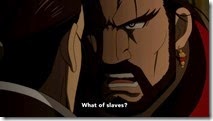 |
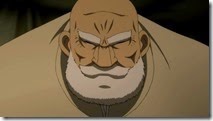 |
 |
 |
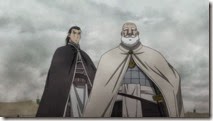 |
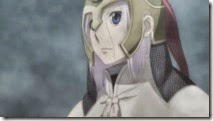 |
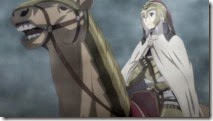 |
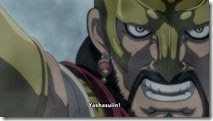 |
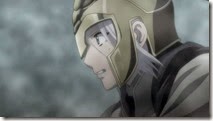 |
 |
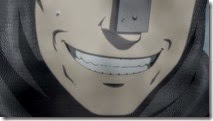 |
 |
 |
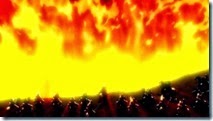 |
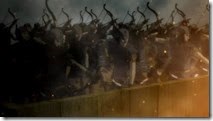 |
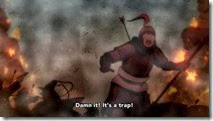 |
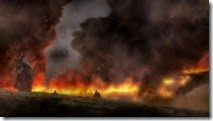 |
 |
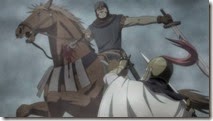 |
 |
 |
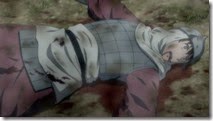 |
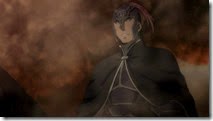 |
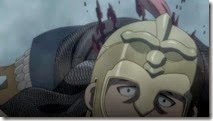 |
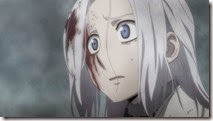 |
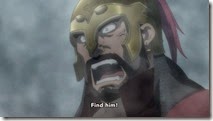 |
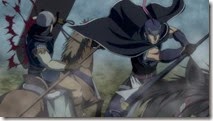 |
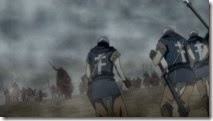 |
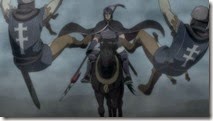 |
 |
ED: “Lapis Lazuli” (ラピスラズリ) by Eir Aoi
 |
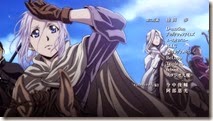 |
 |
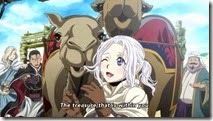 |
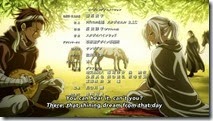 |
 |


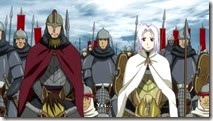
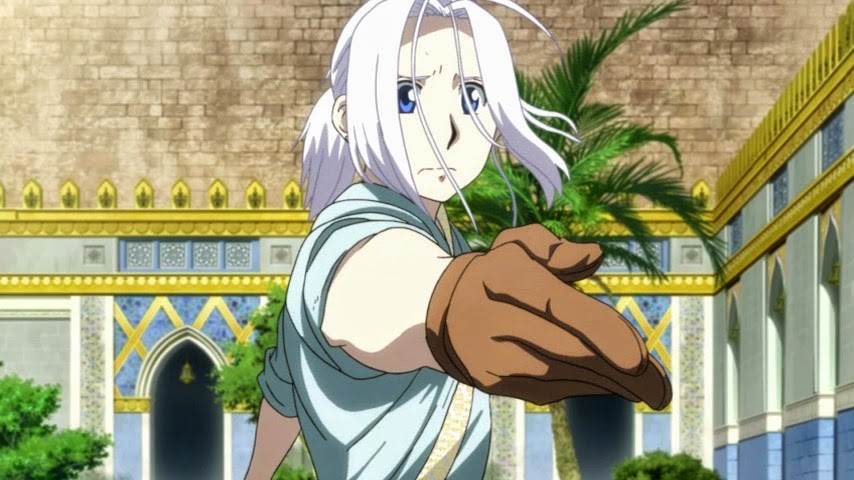
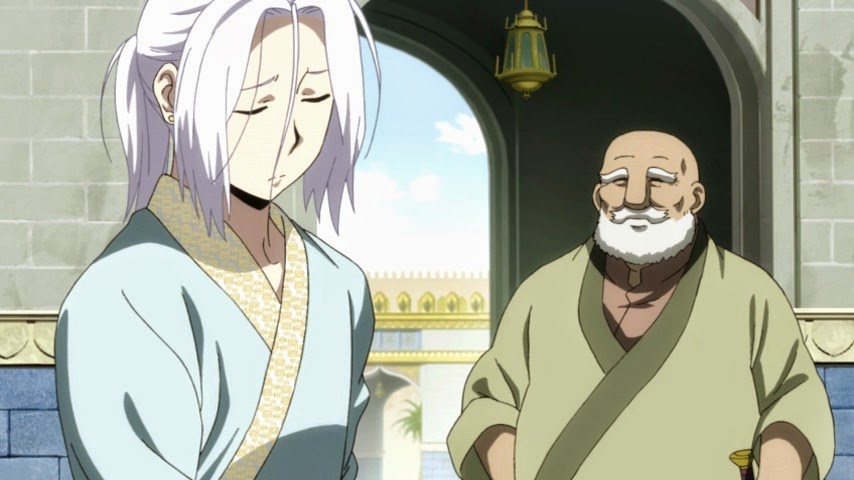
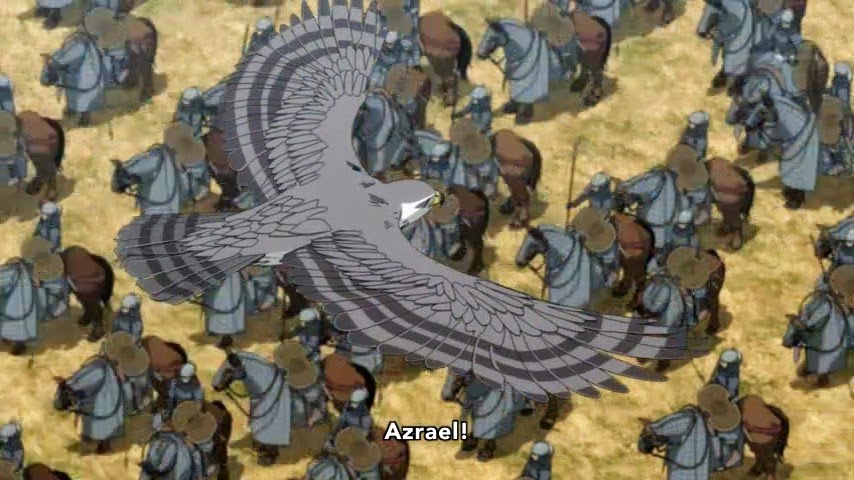
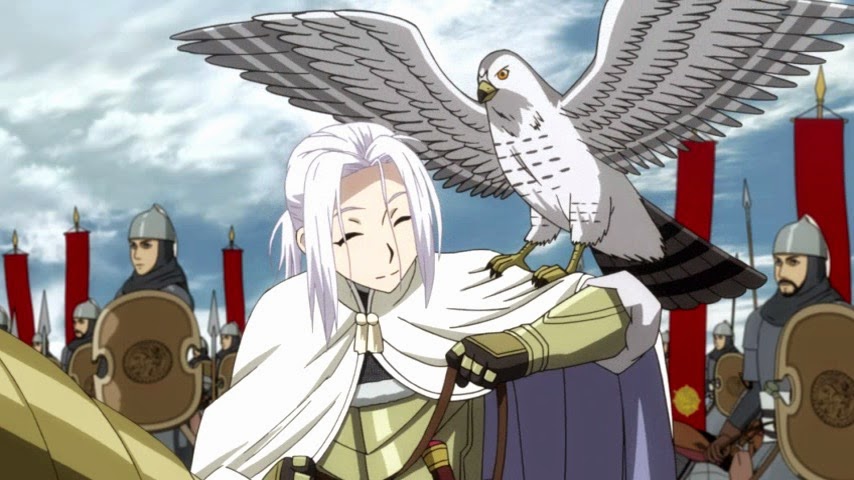
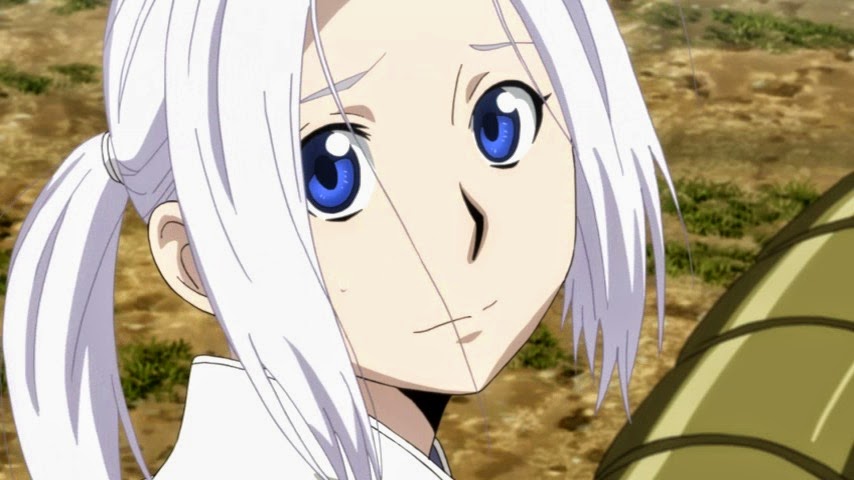
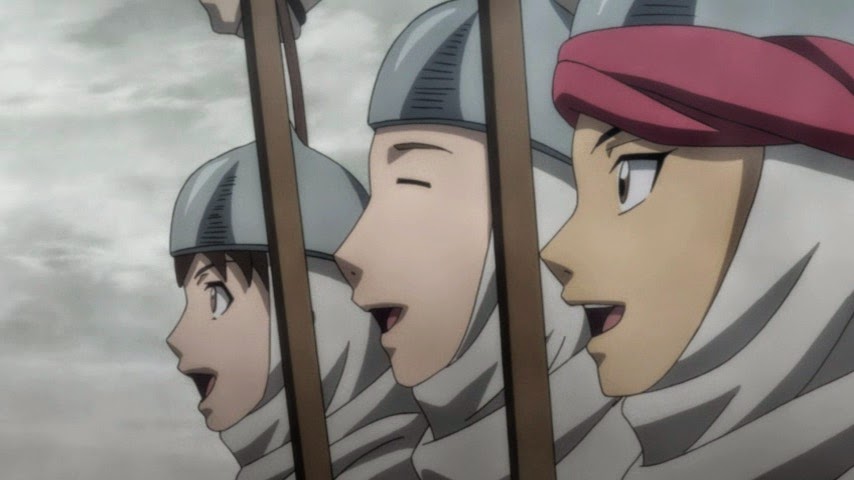
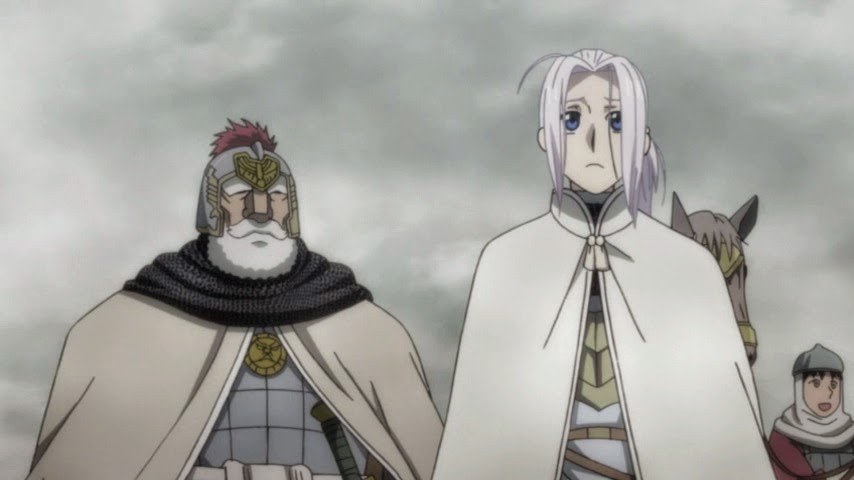
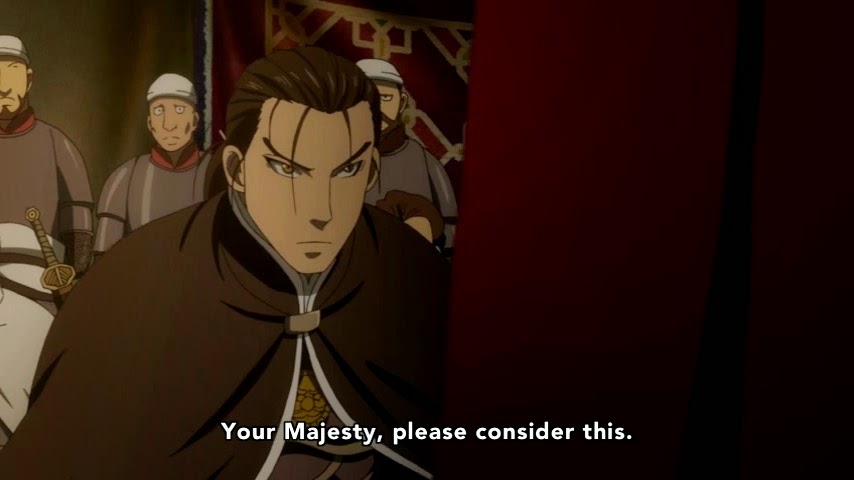


currycurry
April 12, 2015 at 7:39 pmThe message in support of the show by the novels' author at the end of the episode was hella amusing. Hard-core fans, man….
admin
May 11, 2015 at 5:48 pmI missed that. Not shocked it was necessary.
Samurai Jack
April 12, 2015 at 8:41 pmI initially had little interest in this series, especially after viewing numerous static 30 second ads that showed very little of what the series was like. I also did not like the fanservice-like character design of Farangis. However, I greatly enjoyed FMA: Brotherhood and like Hiromu Arakawa's character designs. Based off these first two episodes, Daryun's character design is my favorite and I am glad that he will most likely be among the main cast.
Is it known yet how many episodes this series will be?
admin
April 13, 2015 at 12:39 amNo, and that's a matter of considerable curiosity for me and a lot of others, too.
Altritter
April 13, 2015 at 4:21 amIt's probably at least two cour, given the timeslot and the fact that Arakawa's already designed characters that haven't shown up in the manga, but length is always a hard call in anime until it's actually confirmed. Really crossing my fingers for two cour, though.
That Latin@ Chick
April 13, 2015 at 2:22 amI can't help but feel sorry for Arslan he is a good person caught up in a very cruel world and I find him enduring to be able to remain kind considering the environment he lives in. Since its obvious this story is going to be very big I wonder if its going to end like Akatsuki no Yona by leaving it open ended since the novels are not finished or have an anime original ending. In a weird way this might leave me bitter because now I might have two series that I truly like where we might not be able to see the "Big" moments in their series in anime form due to their source materials. Ah well I might as well enjoy the ride.
Simone
April 13, 2015 at 9:27 amOn the other hand, the guys at Cards Against Humanity demonstrated that crap can actually sell pretty well:
http://distractify.com/jake-heppner/cards-against-humanity-sells-actual-bullshit-on-black-friday/
So there's hope!
e567816e-dbba-11e4-b982-ef51d21ba969
April 13, 2015 at 4:25 pmI personally wouldn't agree that going into something without being familiar with the source material is the ideal way to experience something, but that is truly a personal opinion in regards to how you experience media. (For me, part of the pleasure of an adaption is seeing the choices the people behind them make, and why. Sometimes it's as simple as budget reasons, other times it's a gulf in how we interpret the story.)
One of the things I like about this version is how (comparatively) human Karlan comes across, especially compared to the old movie, where he was practically played by a distant cousin of Snidely Whiplash.
I also liked that the manga and now the anime have carefully preserved Arslan's CAPACITY to kill. When a young boy like Arslan has taken life to preserve his own, it makes all the more meaningful his future efforts to avoid senseless violence. (Though, he's far from pure and perfect in that regard as well.)
I liked less the cartoonish quality of Daryun's horse stepping on people's faces as it flies through the air, though I suppose the movie 's version wasn't much better with it hopping down the hillside like a mountain goat.